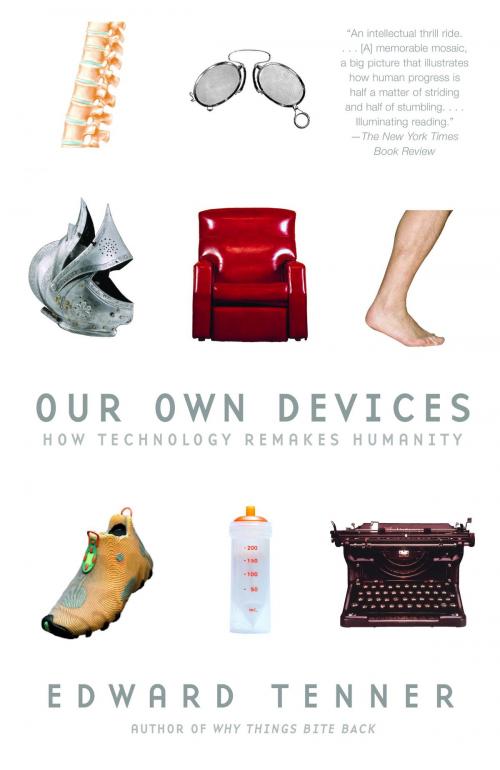Our Own Devices
How Technology Remakes Humanity
Nonfiction, Science & Nature, Science, Other Sciences, Applied Sciences, Technology, Engineering, Social & Cultural Studies, Social Science, Anthropology| Author: | Edward Tenner | ISBN: | 9780307489227 |
| Publisher: | Knopf Doubleday Publishing Group | Publication: | August 26, 2009 |
| Imprint: | Vintage | Language: | English |
| Author: | Edward Tenner |
| ISBN: | 9780307489227 |
| Publisher: | Knopf Doubleday Publishing Group |
| Publication: | August 26, 2009 |
| Imprint: | Vintage |
| Language: | English |
This delightful and instructive history of invention shows why National Public Radio dubbed Tenner “the philosopher of everyday technology.” Looking at how our inventions have impacted our world in ways we never intended or imagined, he shows that the things we create have a tendency to bounce back and change us.
The reclining chair, originally designed for brief, healthful relaxation, has become the very symbol of obesity. The helmet, invented for military purposes, has made possible new sports like mountain biking and rollerblading. The typewriter, created to make business run more smoothly, has resulted in wide-spread vision problems, which in turn have made people more reliant on another invention—eyeglasses. As he sheds light on the many ways inventions surprise and renew us, Tenner considers where technology will take us in the future, and what we can expect from the devices that we no longer seem able to live without.
This delightful and instructive history of invention shows why National Public Radio dubbed Tenner “the philosopher of everyday technology.” Looking at how our inventions have impacted our world in ways we never intended or imagined, he shows that the things we create have a tendency to bounce back and change us.
The reclining chair, originally designed for brief, healthful relaxation, has become the very symbol of obesity. The helmet, invented for military purposes, has made possible new sports like mountain biking and rollerblading. The typewriter, created to make business run more smoothly, has resulted in wide-spread vision problems, which in turn have made people more reliant on another invention—eyeglasses. As he sheds light on the many ways inventions surprise and renew us, Tenner considers where technology will take us in the future, and what we can expect from the devices that we no longer seem able to live without.















